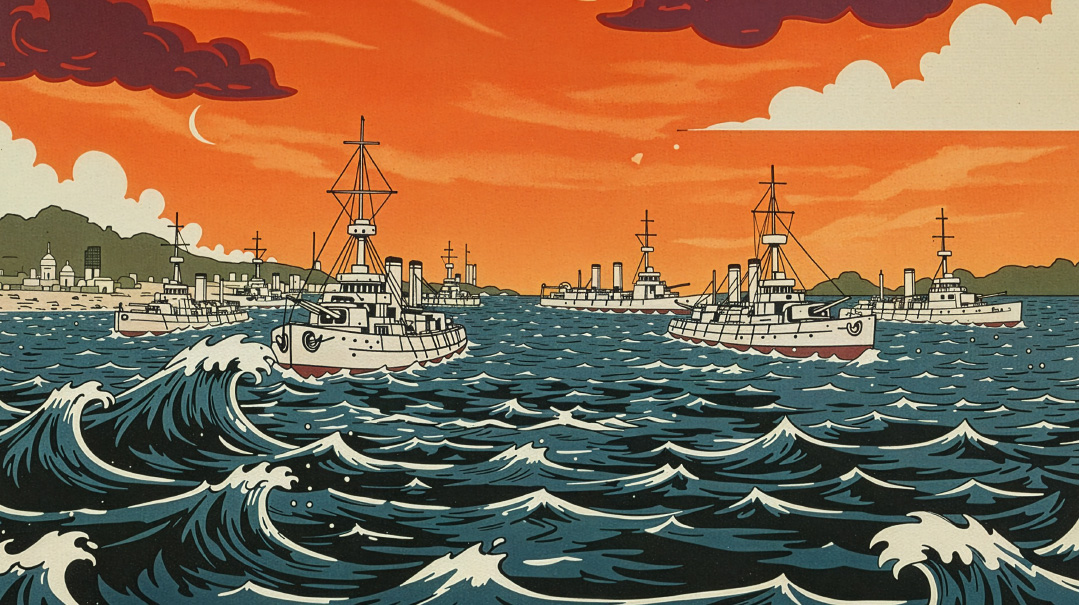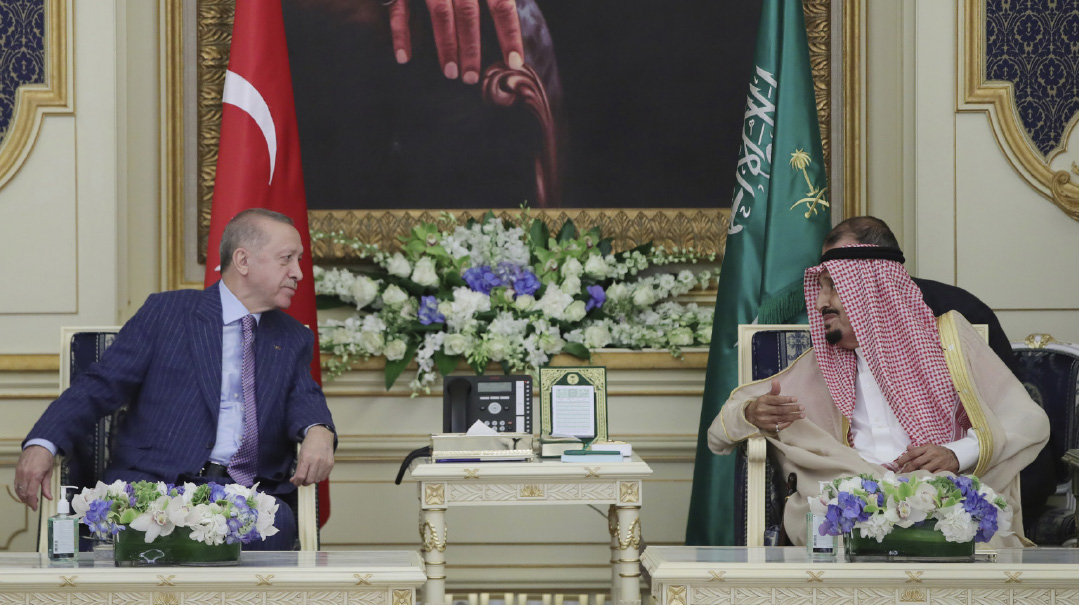“It’s Either Navalny or Putin”

Alexei Navalny's Orthodox Jewish chief of staff on the scenarios for Putin's end
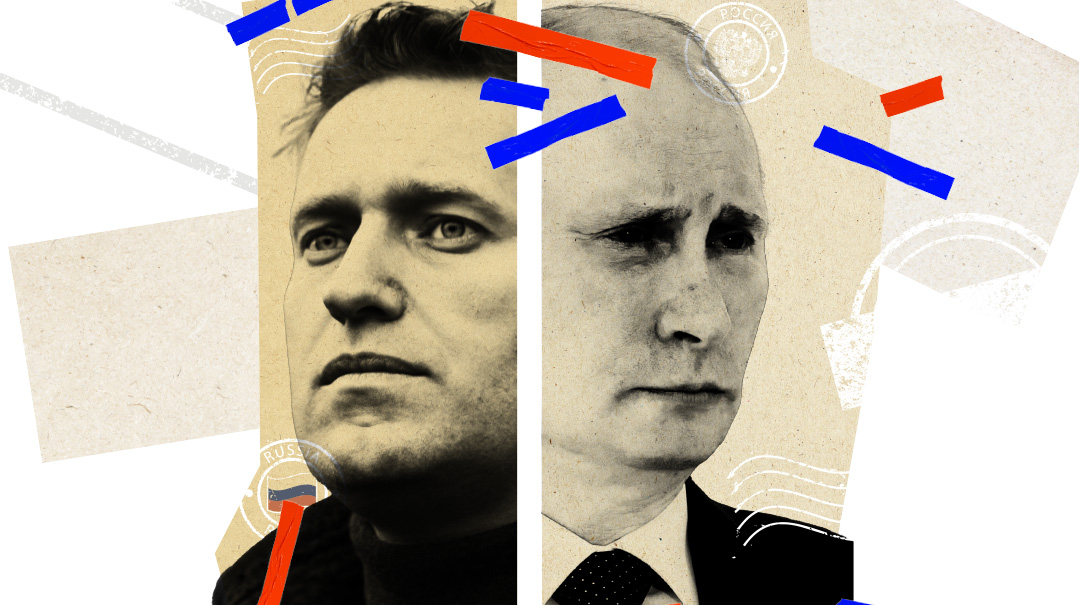
While Russian opposition figure Alexei Navalny is locked away deeper in the country’s brutal prison system, his Orthodox second-in-command Leonid Volkov says that Putin’s regime, which has been humiliated by the Ukraine war, is vulnerable to the truth like never before
Russian opposition leader Alexei Navalny’s return to Moscow last year after narrowly surviving a regime-backed poisoning attempt could only have one ending.
The founder of the “Russia of the Future” party, an anti-corruption campaigner who is Vladimir Putin’s highest-profile adversary, was arrested and swiftly sentenced to a long spell in a maximum-security jail on bogus tax evasion charges.
Not many know that Navalny’s chief of staff and number two, Leonid Volkov — a successful high-tech entrepreneur — is an Orthodox Jew who now lives with his young family in Vilnius, Lithuania.
When Navalny flew back into the lion’s den, it was after saying goodbye to Volkov in Germany.
Shortly after, Volkov and I had a lengthy phone interview in which he discussed what had motivated his boss to fly back into Russia, what had prompted his own Jewish journey, and the realistic scenarios for ending the reign of the then-secure Putin.
“It won’t be short or easy,” he said, “but one scenario is that Putin’s elite becomes so unhappy with his leadership that they call for transition and for dialogue between the Kremlin and the opposition, such as happened at the end of Franco’s dictatorship in Spain in the 1970s.”
Fifteen months after that conversation, a lot has changed. Mired in a war of Putin’s choosing that has highlighted the rotten state of his armed forces, the Kremlin has chosen to crack down on basic freedoms, such as press freedom, in a way unprecedented since Soviet times.
In that void, Navalny’s outfit — headed by Leonid Volkov — has turned into the only reliable source of truth about the war’s progress for millions of Russians.
Mirroring the atmosphere in the country as a whole, the walls have closed even further around Alexei Navalny. Two weeks ago, he suddenly made news after his lawyer visited his prison and was told that the dissident was no longer there. It turned out that he’d been transferred to another penal colony, notorious for claims of torture.
But even as Navalny disappears deeper into the Russian prison system, says Volkov, the regime that’s targeted him is now faced by an existential threat.
“The Kremlin is very fearful of Putin’s plunging approval ratings, and they miscalculated in thinking that this war would restore his popularity. We don’t know what spark will set the Russian people alight, but it could be that, like the Arab Spring, a single event will prove the last straw.”
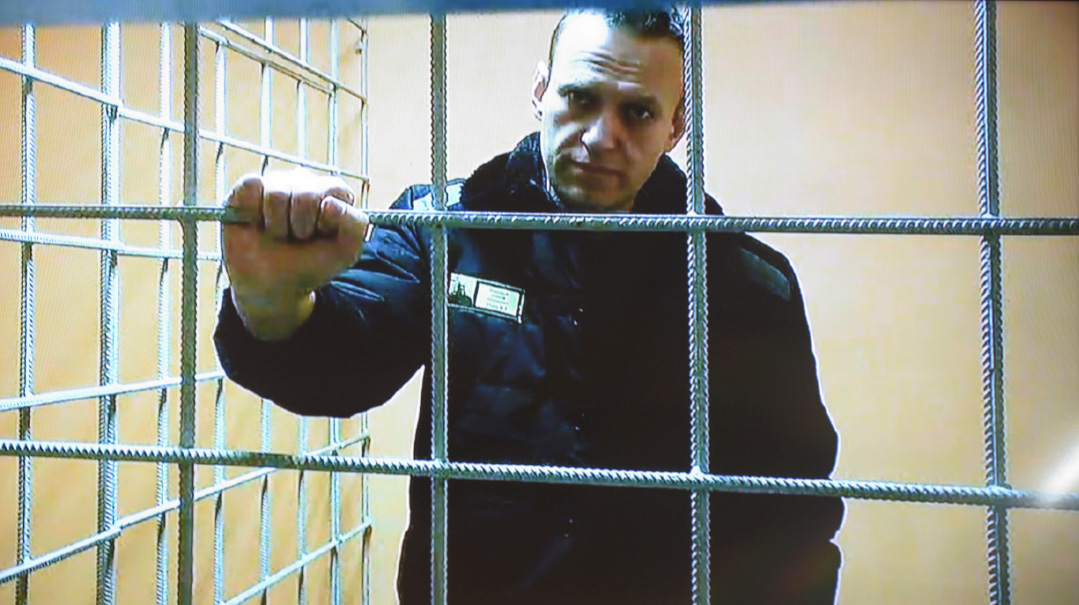
PRISONER OF CONSCIENCE A gaunt Alexei Navalny awaits the latest machinations of Putinist justice (Photo: APimages)
Let’s start with Alexei Navalny. What just happened to him, and how is he?
Alexei’s in a maximum-security prison, and he’s just been hit with another conviction and nine-year sentence on false charges. He’s held in very harsh conditions, but he remains strong. He also remains our leader, not just as a symbol, but in active terms. His lawyer updates him on what goes on in the world, and he takes decisions about our next moves.
Effectively, he’s been handed a life sentence, because they’ll keep adding to it. That means that it’s his life or Putin’s — whichever expires first.
But in the meantime, and despite Navalny’s fame, you can’t rule out him being “Magnitskyed” — meeting a mysterious fate inside the prison like the Russian lawyer who was investigating high-level corruption and who died in prison in 2009 in unexplained circumstances.
We hope that will not happen and will do whatever possible to keep attention focused on Alexei. But the system is trying to make him disappear from view, which is why they’ve moved him.
Last year, I asked you what motivated Navalny to return to certain imprisonment when he’d survived assassination by nerve agent, and you said that while he’s brave, your boss isn’t suicidal, but wanted to go back to Russia, which is his home. It’s still unclear to me, what motivates him?
It’s very simple. He is motivated by the same thing that unites all of us: We know that we’re on the right side of history in our struggle and that Russians deserve better than their current leadership.
Tell me about your own life in exile in Lithuania. Are you under Russian surveillance?
I’m in charge of running the largest opposition in Russia, so I am watched. But the only way that I can be effective is by leading a normal life. Although I’m not under government protection, Lithuania is a safe country, and the leadership understands the risks of my being here.
Many of the Lithuanian leaders have been on our YouTube channel, and they help in promoting the truth to Russian speakers.
Let’s talk about the war. You’ve spent years calling for sanctions on the Russian elite. Now that those are in place, why haven’t they worked?
When we last spoke in 2021, I called for preemptive sanctions against Putin’s own assets and those of his friends, and they could have saved lives at that point, but not anymore.
The absence of those sanctions, despite the annexation of Crimea and the downing of MH17 in 2014, encouraged Putin to act with impunity. They’re the reason that Putin miscalculated — he thought that the Ukrainian army would be defeated quickly, that Ukrainians would greet Russians as liberators, and that the West wouldn’t apply sanctions. That’s why he kept all of his currency reserves in the West, where they’re now frozen.
So, if sanctions are too little, too late, what needs to happen to bring Putin to his senses?
Sanctions are too late to stop the war, but they have another goal: to strip Putin of his money and make it harder to finance the Russian military machine.
The war is being fought on three fronts: military; economic, where sanctions make it difficult to continue; and the information front, where we’re trying to reduce Putin’s ability to control the minds of the Russian population.
As an organization, we still do anti-corruption investigations, but since day one of the war, we’ve been engaged in a huge online counter-propaganda exercise. We’re telling the truth and relaying the news about the war that Russians don’t hear on state TV, now that Putin has brought real wartime censorship to the news.
What do ordinary Russians know of the war, and how do you go about reporting when the Kremlin controls the online world as well?
If you’re an average Russian watching TV, then you’re told that Russia has suffered almost no casualties and is advancing and only attacking the Ukrainian military, not civilians. You’re told that the “Nazis” led by their Jewish president are fleeing Russian forces.
But after four months of war, even the most loyal viewers are starting to question why, if things are so good, the outcome is taking so long.
That’s why Putin has added another narrative, which is that Russia is not just fighting Ukraine, but rather a proxy war against NATO and a huge coalition of European countries, and that World War III has begun.
So, what we do now is a daily broadcast on YouTube with Russian, Ukrainian, and foreign experts, just reporting on the real progress of the war. Monthly, we reach 12-15 million unique viewers inside Russia, which is starting to change public opinion on the war.
From the fact that the Kremlin hasn’t blocked YouTube, it sounds like oppression isn’t quite what it was under the Soviets, say in the 1970s.
Even in the 1970s, there was still a way to get information from the West via radio receiver. The Kremlin has shut down independent media outlets and websites, but so far hasn’t closed down YouTube. If that were to happen, then the only way for Russians to receive our information would be by using VPNs.
Besides viewing numbers, how do you know that your message is getting through?
Our polling shows that support for the war is dropping five to eight points monthly — in a few months, there’s no knowing where it could be.
There’s been an unspoken contract between Putin and the Russian people for 20 years: Stay out of politics, and you’ll get a rising standard of living.
That’s why 70 percent of Russians, who enjoyed a far better life than at any point in Russian history until the war, have never participated in political life. They used the Internet for entertainment, but tuned out politics.
This social contract is under attack because of the dramatically lower quality of life under sanctions.
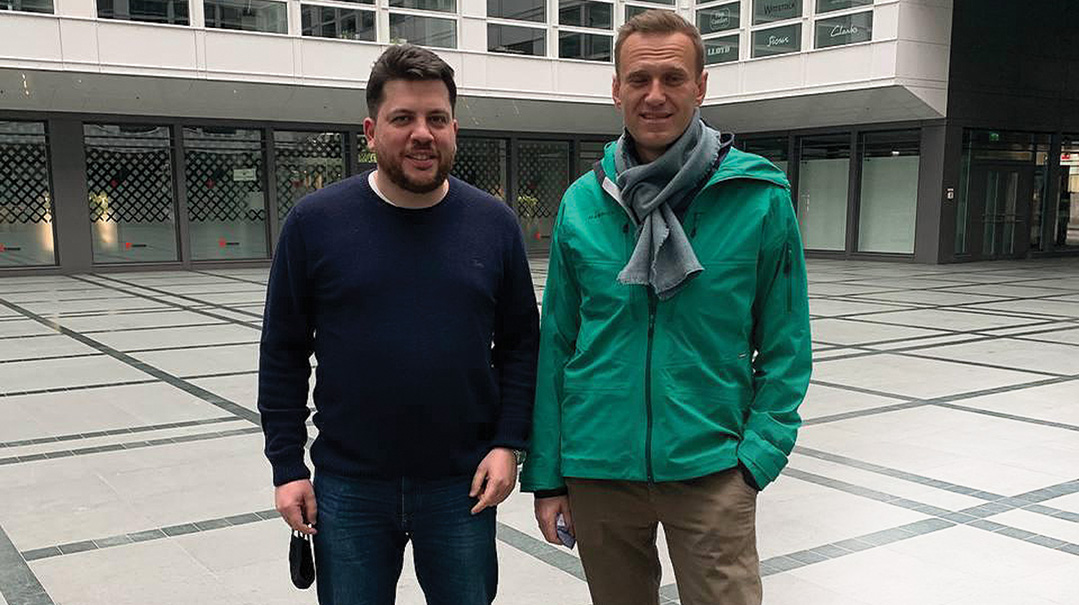
Leonid Volkov with Navalny in Berlin
Does the Kremlin care what people think, given that they control the levers of power?
Yes, the Kremlin is very worried, because they’re very data driven. They do lots of polling to make sure that their narrative stays close to public opinion.
Any form of protest against the war is banned. You can’t rally against it, post online against it, or fundraise for organizations that speak against it. Sixteen thousand people have been arrested since the outbreak of fighting, and many have received prison sentences. The level of oppression is unprecedented in modern Russia, but there is growing dissent.
This war is unquestionably Putin’s personal project. Has its growing unpopularity hit Putin’s own poll numbers?
The cornerstone of Putin’s success is that over 20 years, and despite whatever happened in the country, he himself always managed to be the most popular politician in the country. His own legitimacy gave standing to his lieutenants, such as regional governors.
The first time in history that Putin’s official polling gave him less than 50 percent was November 2013. He was then lucky enough to play the Crimea card, a bloodless annexation that he sold to supporters as a huge victory that restored Russia to the glory-days of Soviet times. His popularity skyrocketed.
That’s why when his polling slipped again to under 50 percent in November and December last year — partly as a result of our exposés on official corruption and Navalny’s poisoning — it was clear that he needed another successful war.
Which means that as well as looking at satellite images of troop buildups outside Ukraine, Western analysts should have looked at Putin’s poll numbers to discern his intentions?
Yes, he needed to do something. Based on his own intel, on which they spent billions, Ukraine was ripe for the taking. Putin believed what his FSB spy service told him, that Ukraine would fall like the Crimea had — without resistance. So, the Russians sent in large police forces in regular cars along with the troops to take power immediately. That’s why they suffered such large losses.
How do you see the war’s endgame playing out?
In chess terms, it’s a stalemate. Russia has probably achieved the maximum it can at the moment, but having invested and lost so heavily, Putin needs something he can market as a victory. Ukraine can’t advance more than it has until it receives far more heavy weaponry. Also, their public opinion won’t agree to any cease-fire without reclaiming lost territory.
So, this could last many months until Ukraine gets enough weapons and troops to launch a successful counter-offensive, or until Russia dares to fully mobilize its population or use nuclear weapons — both of which would be enormously unpopular in Russia.
Would Putin really dare to use nukes?
I believe that he wouldn’t, because he can’t be sure that his military would execute his order to use nuclear weapons.
The Kremlin is weighing mobilization of the Russian population, but it would require far more propaganda. But it could be that such a move would be the missing match to make Russian society explode against the regime.
(Originally featured in Mishpacha, Issue 917)
Oops! We could not locate your form.


